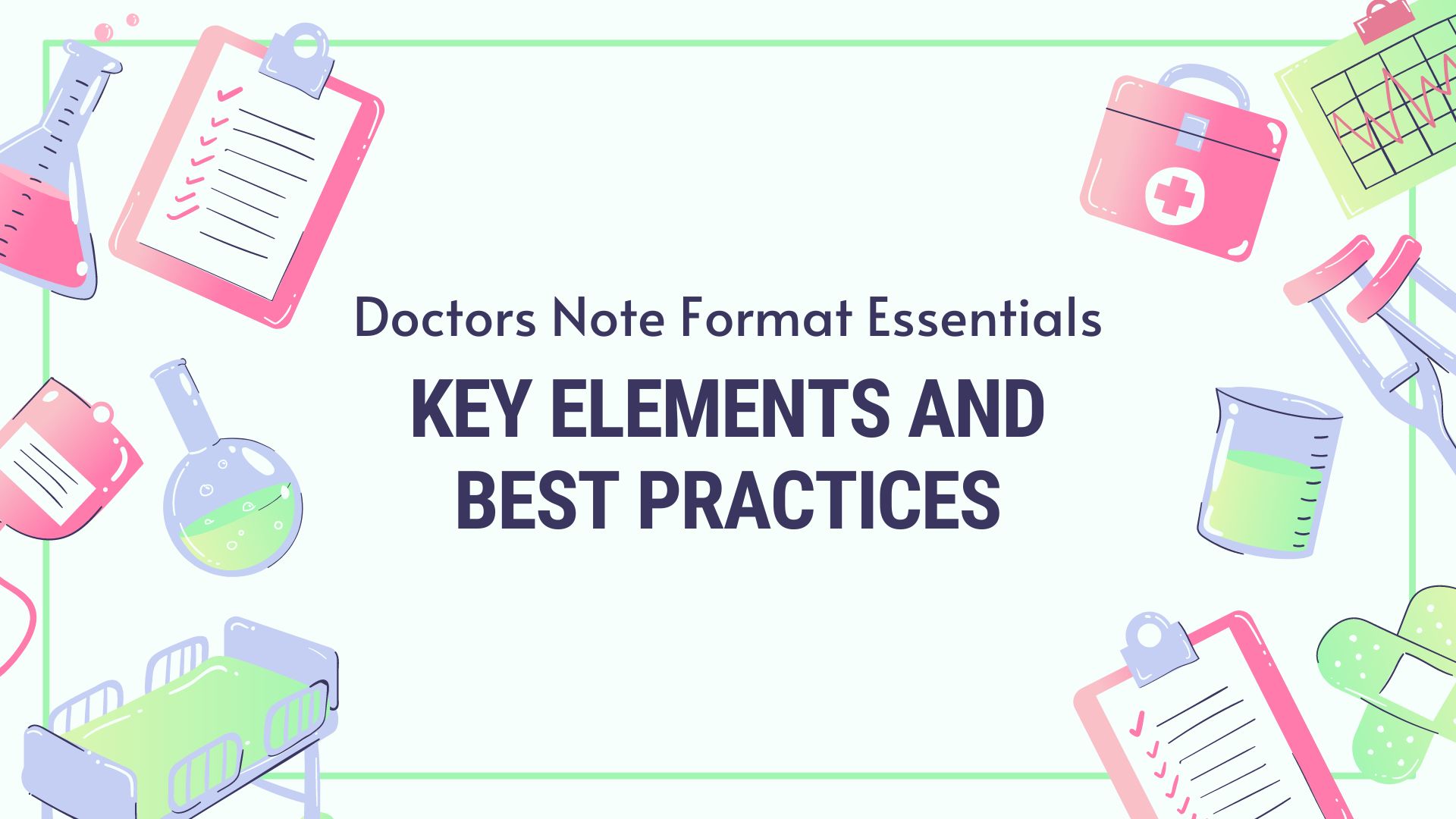A doctor’s note, also known as a medical excuse or sick note, is an essential document in both professional and educational settings. It serves as an official verification of a patient’s medical condition and provides necessary details about the diagnosis, treatment, and any recommendations for time off or activity restrictions. Creating a professional and compliant doctor’s note involves understanding the key elements that need to be included and following best practices to ensure clarity and accuracy. In this blog, we’ll explore the essentials of a doctor’s note format and offer tips for crafting one that meets all necessary requirements.
Why a Proper Doctors Note Format is Important
A well-structured doctor’s note is crucial for several reasons:
- Professionalism: A clear and well-formatted note reflects the professionalism of the healthcare provider and the medical practice.
- Clarity: A standardized format ensures that all necessary information is communicated effectively, reducing the chance of misunderstandings.
- Legal Protection: Properly documented notes can serve as legal evidence if there are disputes or inquiries regarding the patient’s condition or absence.
Key Elements of a Professional Doctors Note Format
To create an effective doctor’s note, certain key elements must be included. These components ensure that the note is comprehensive, informative, and professional.
1. Header with Medical Practice Information
The header of the note should include the name of the medical practice, the address, contact information, and the name of the attending physician. This information provides credibility to the note and offers a point of contact if further verification is needed.
Example:
[Medical Practice Name]
[Address]
[City, State, ZIP Code]
[Phone Number]
[Email Address]
2. Patient Information
Include a section that captures the patient’s full name, date of birth, and the date of the visit. This ensures that the note is linked to the correct individual and medical record.
Example:
Patient Name: ___________________________
Date of Birth: ___________________________
Date of Visit: ___________________________
3. Statement of Medical Condition
A brief statement outlining the patient’s medical condition or the reason for their visit is essential. This section should be concise but informative, providing enough detail to explain why the note is necessary.
Example:
Medical Condition/Diagnosis: ____________________________________________
4. Treatment or Recommendations
This section details any treatments administered during the visit and recommendations provided by the physician. This could include prescribed medications, follow-up visits, or any advice regarding physical activity or work restrictions.
Example:
Treatment Provided: ____________________________________________________
Recommendations: ______________________________________________________
5. Duration of Absence or Activity Restrictions
If the patient needs time off from work or school, this section should specify the duration of the absence. Additionally, if there are any activity restrictions (e.g., no heavy lifting), these should be clearly noted with relevant time frames.
Example:
The patient is advised to refrain from [specific activities] from [Start Date] to [End Date].
6. Physician’s Signature and Date
The note should be signed by the attending physician and dated. The signature verifies that the information provided is accurate and endorsed by a licensed medical professional.
Example:
Physician’s Signature: ___________________________ Date: ________________
Best Practices for Crafting a Doctors Note
1. Keep It Simple and Direct
While it’s important to include all necessary information, the note should be simple and straightforward. Avoid unnecessary medical jargon that could confuse the recipient. Clear and direct language ensures that the note is easily understood by non-medical professionals.
2. Maintain Confidentiality
Ensure that the doctor’s note respects patient confidentiality. Include only the information necessary to fulfill the purpose of the note. Avoid detailing sensitive medical conditions unless absolutely required, and ensure that the note adheres to HIPAA regulations or other relevant privacy laws.
3. Be Accurate and Honest
The details provided in the note should be accurate and truthful. Providing false or misleading information can have serious legal implications for both the patient and the healthcare provider. Always ensure that the information reflects the true medical situation of the patient.
4. Use a Standardized Template
Using a standardized template can help ensure that all necessary elements are included and that the note is consistent with other documentation from the practice. A template also helps in maintaining a professional appearance across all documents.
5. Leverage Technology for Efficiency
To streamline the process of creating doctor’s notes, consider using tools like VOMO AI. VOMO AI can assist in transcribing and generating professional notes directly from audio recordings, ensuring accuracy and saving time for busy healthcare providers. By using advanced AI capabilities, healthcare professionals can focus more on patient care and less on paperwork. Click here to learn how to record and transcribe audio with VOMO AI.
Conclusion
Creating a professional and compliant doctor’s note requires attention to detail and adherence to certain best practices. By including all the key elements—such as patient information, medical condition, treatment, and duration of absence—healthcare providers can ensure that their notes are clear, informative, and legally sound.
Incorporating tools like VOMO AI can further enhance the efficiency and accuracy of generating these notes, allowing healthcare professionals to deliver high-quality care without the administrative burden. Whether you’re crafting a doctor’s note for a patient or designing a standardized template for your practice, following these guidelines will help you produce documents that meet the highest standards of professionalism and clarity.


